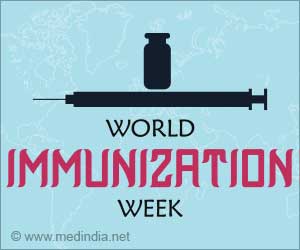The Uttar Pradesh government has decided to prepone the Japanese Encephalitis immunisation drive. This has caused displeasure among the health experts in the centre as they feel that it might not be he right time and the data may need further analysis.
It has been decided that the immunisation campaign scheduled to take place on June 18 is to be undertaken on May 15, 2006 itself. 5.2 million doses of the Chinese made Japanese Encephalitis (tissue culture vaccine), manufactured by the Chengdu Institute of Biological arrive in India, on May 11. Which would mean that the drive would start just three days after their arrival. The remaining 13.5 million doses are likely to be imported by mid-June.The Uttar Pradesh Government, have announced that they would be going ahead with the campaign in the districts of Gorakpur, Maharajgunj, Dewdia, Kushinagar and half of Lakhinpur Kheri. They also announced that the other six districts are likely to have the drive in June.
Earlier the health ministry had planned to conduct the campaign simultaneously in 11 highly endemic districts, seven in UP, two in Assam, and one each in Karnataka and West Bengal, in June. Officials announced that the Chinese vaccine (SA-14-14-2) was found to be safe and having an efficacy between 88 and 99 per cent on single dose even by the WHO's Global Advisory Committee on Vaccine Safety during its June meeting last year and also from a high-level committee of the Indian Council for Medical Research, but some reports are still awaited.
The expert teams in the Central government and international agencies are not in favour of as they feel that this would mean compromising with some aspects such as training of the ground staff, generation of basic infrastructure such as appropriate cold chain to maintain the vaccine, power back up and mechanism for reporting of any adverse incidents. They felt that any single loophole might lead to doubts over the entire programme. For example, they explained that the vaccination might be seen as responsible for death of a child, but in reality may have died due to heat stroke. For all these and more proper monitoring were needed, they said.
Besides they also said that the results of the animal toxicity studies being carried out by the National Institute of Nutrition, Hyderabad, would be available only by June. The institute has been now asked to prepare a preliminary report by May 15, they said adding post-marketing surveillance may not be possible in the programme in UP.
Sources have said that the central government is also rushing a team of officials to Gorakpur to train the staff and create proper cold chain and power backup before the programme takes off. The vaccination programme is being undertaken under the expert guidance of the Indian Council of Medical Research (ICMR) that would also be undertaking surveillance simultaneously.
Advertisement
Japanese Encephalitis has been claiming around 1,000 to 2,000 lives every year since 1952. About 600 to 700 children have been dying in Uttar Pradesh (mostly in Muslim-dominated areas) and the issue was much politicised last year, with both Sonia Gandhi and the Prime Minister asking for action.
Advertisement
Officials estimate that the programme this season would cost Rs 18 crore.










